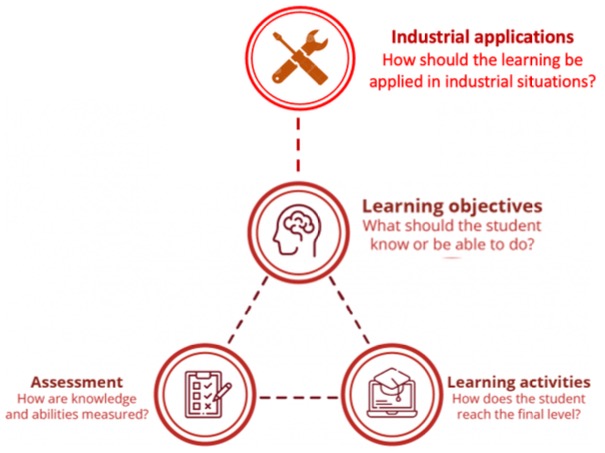Continuing the series, now I want to summarize where Constructive Alignment as a didactical tool falls short – and how I would fix it.
I said it in my last blog. Whereas John Biggs did a great job of connecting learning outcomes with learning activities and learning assessments, a connection to the real world — to the WHY — is completely missing.
Fortunately, this seems very easy to fix, as shown here:
In other words, the real world goals — the WHY — feed into the learning outcomes. In my next blog I’ll give a concrete example of how this could look in a real-world teaching situation.
